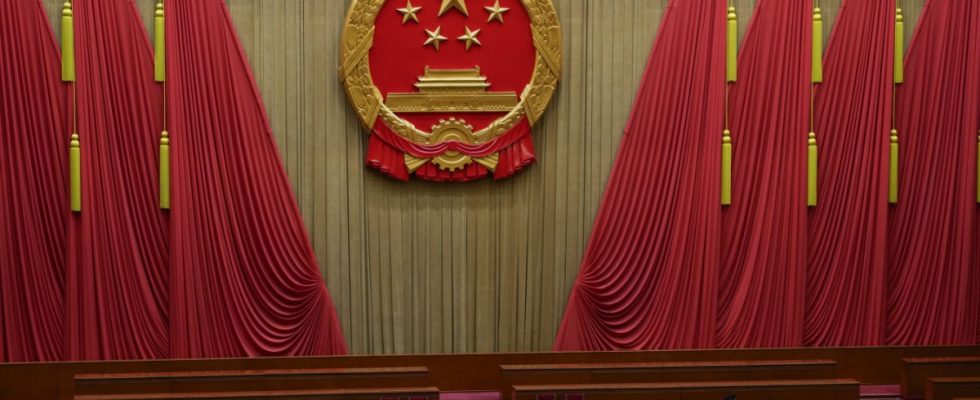Despite significant economic difficulties, China has set itself an ambitious growth target of around five percent for the current year. Chinese Prime Minister Li Qiang named the number in his annual report at the start of the People’s Congress in Beijing. “It will not be easy to achieve this year’s goals,” Li vowed to the 2,872 delegates in the Great Hall of the People. We have to “work hard” and mobilize joint efforts from all sides.
Li made it clear that the transformation of the economy must continue. “We should adhere to the principles of pursuing progress while ensuring stability, promoting stability through progress, and creating new things before abolishing old ones,” Li said. The transformation of the growth model must be pushed forward.
Last year, China had already aimed for growth of around five percent, which was ultimately slightly exceeded. According to official data from the Beijing Statistics Office, the second largest economy grew by 5.2 percent. However, critics fundamentally question the accuracy of Chinese economic data. Nevertheless, the level of the growth target is considered an important yardstick and indicator of the government’s economic policy course.
The country wants to create more than twelve million new jobs in cities
The Chinese economy recently suffered from weak global demand, the struggling real estate market and weak domestic consumption. The Chinese stock market is under great pressure. Because of the economic crisis in the world’s second largest economy, domestic and foreign companies in particular are likely to be hoping for important signals from the People’s Congress this year. Before the announcement, observers had described a possible growth target of around five percent as quite ambitious. Growth of this magnitude was easier to achieve last year because the economy benefited from catch-up effects after the corona pandemic.
As can be seen from the government’s draft budget, also published on Tuesday, the deficit should be three percent of economic output. Three percent was also planned for 2022, but this was later increased to 3.8 percent.
Li also announced that more than twelve million new jobs will be created in cities this year. In addition, as in the previous year, the government is aiming for an unemployment rate of around 5.5 percent. Inflation is expected to be around three percent. Beijing also wants to invest heavily in the military again: According to the draft budget, the defense budget was increased by 7.2 percent to 1.67 trillion yuan (around 214 billion euros). The decision to significantly increase the budget again is probably related to the tense relationship with Taiwan, which China sees as a breakaway province, and disputed territorial claims in the South China Sea.
Experts do not yet expect a war to break out in the strait between China and Taiwan. However, Beijing is striving for reunification with the island republic – if necessary with military means. The People’s Republic maintains the largest army in the world in terms of an estimated two million active soldiers.

